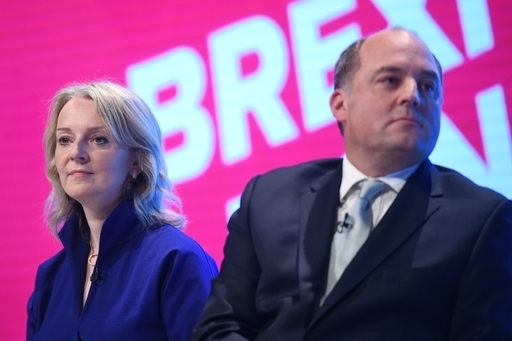The defence secretary has seemingly contradict the foreign secretary this morning, as he argued there are “better ways” to help Ukraine than by travelling to fight there.
Liz Truss told the BBC on Sunday that she endorsed Ukrainian president Volodymyr Zelensky’s call for an international resistance force to help Ukraine defend against the Russian invasion.
However defence secretary Ben Wallace told Sky News this morning his colleague was “right to say” what she did given the justness of the cause, but pressed that only “trained military personnel” ought to travel to join Ukraine’s frontline.
“We can all do our bit – whether that’s donating through the Ukrainian Embassy… Our armed forces are contributing in a proper way to do this,” he explained.


Wallace noted that as of this morning, Russia has failed in its attempt to secure two large cities in Ukraine’s north-east.
It appears Wallace was referring to Chernihiv and Kharkiv, two urban centres Ukraine’s north and north-eastern regions respectively that have seen heavy fighting, but has so far resisted Russian takeover.
Wallace claimed in an interview with BBC Radio 4’s Today programme this morning that “… the Russian advance [was] not going to plan,” and that: “They haven’t yet got what they wanted, they haven’t got it to timetable. They are taking casualties every day and that’s mainly because of” a “flawed planning assumption”.
“The Russian doctrine is if you don’t get what you want, get more and more violent, get more
and more indiscriminate. That doesn’t always work and we’ve seen right now it isn’t working,” Wallace went on.
When quizzed by the Today programme over any UK plans to accommodate refugees, the defence secretary argued that: “Britain is leading the world in providing and coordinating lethal aid and non lethal aid. Ukrainians want to be in Ukraine, they want to be in Ukraine, that is their first wish.
However he went on to suggest that the UK would mirror “very generous” schemes it had contributed to following other crises.
“I think what I would say is, you know, our track record so far, both with Afghans and (the) Arap (Afghan Relocations and Assistance Policy) scheme, and indeed with the Hong Kong nationals who were suffering persecution, has been actually very generous,” he explained, adding: “So there’s no reason to doubt we won’t continue on that path.”
“Britain was the first European country to step up to join America with lethal aid,” Wallace went on, responding to questions over cuts to Britain’s armed forces ahead of the crisis, going on to say: “We’ve now even got the Belgians and other countries who historically would have been hesitant delivering lethal aid. I welcome strongly the EU’s position, it took quite a lot of us quite a lot of effort.”
“The key is to get that balance. In the defence command paper we said a number of things should happen. One is spend[ing] the money on the armed forces, the people we have, to be better equipped, more lethal, more joined up and at more readiness.
“Otherwise you end up in an army I was in when we had on paper lots of divisions but when you press the button they were completely hollow and we didn’t quite have the kit to deliver it… We have to some extent changed the balance.”
Over the weekend Russian president Vladimir Putin announced in a televised address that he had ordered his nuclear forces to be on high alert.
Wallace said Putin’s comments were being kept “under review,” arguing that it was a “big attempt to distract away from his [Putin’s] troubles in Ukraine by just deploying into the media space these phrases.”
“The people of the United Kingdom should not be unduly alarmed,” Wallace later told Times Radio.

